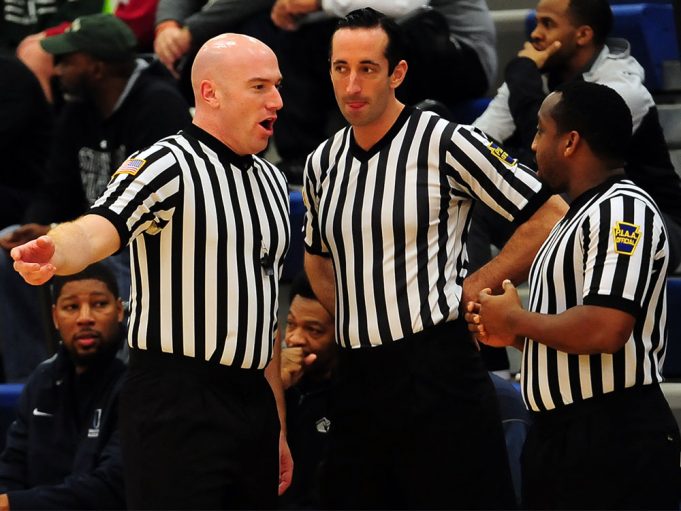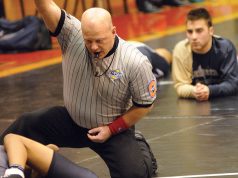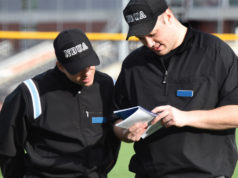There is nothing wrong with being a wallflower by nature. There is, however, a major problem with being one as an official, a lesson I was fortunate enough to have hammered home when I was still in the relative infancy of my officiating career.
I was early in my tenure as a high school basketball official, eager to prove myself to my local association as being worthy of elevation to “certified” status for the next year. That would mean eligibility to work varsity games and to be considered for postseason assignments. I had great relationships with our association board members — who would be the ones voting to approve or reject my advancement during the offseason — and knew one would be in attendance during a particular JV boys’ game.
My partner on our two-person game was a transfer official who had moved into our association from a nearby unit and to put it frankly, we had a tough night. In his own zest to prove himself, he essentially commandeered our performance on the floor, overruling me on a couple of calls and reaching outside his primary area to make some others. I admittedly became frustrated and took a backseat, unwilling to stand my ground for the betterment of the game. I still called my game and felt I performed as well as could be expected given the circumstances, but I did nothing to take charge of the situation.
Perhaps only one of the few hundred fans in attendance took heed of what was happening. That one, however, happened to be our local assigner. And he was not happy. Following the game, he read my partner the riot act and stressed that if he wanted to be a trusted member of our association, he needed to get on board with how we did things and not over-officiate.
I felt a moment of vindication, but it was brief. Because the assigner next turned his critical eye toward me.
“If you want to advance, you need to step up and prove to me that you can be a lead official,” he said. “I don’t need officials who are going to shirk back and not take responsibility. When a game turns to (expletive), or you know something is wrong, I need to know that you are someone who can step up and lead.”
I still clearly picture the scene now, several years later, because of the impact it made on my officiating philosophy. I officiate three sports (baseball, basketball and football), which means I am on the field or court for hundreds of games every year. Odds are not every one of them is going to be a perfectly harmonious situation for me and my officiating partners. There are going to be issues that arise. And when that happens, I now recognize the importance of someone on the crew being willing to step forward and say, this is how we are going to handle this. It doesn’t mean being a control freak.
It doesn’t mean being one of those “my way or the highway” types. It doesn’t mean belittling your crewmates or making them feel inferior in any way. It means being willing to say, I know this rule, 100 percent, and this is how we need to administer it. It means being able to say, philosophically, this is the right way to handle this situation, so this is what we are going to do. It means stepping up and being the example and saying, “This is how we need to take care of this. Follow my lead.”
It doesn’t matter if you are the U2 on a three-person basketball crew, the line judge on a five-person football crew, or the base umpire on a two-person baseball game. If you have the ability and the knowledge to be a lead, then be it. Be willing to step up and be a crew saver. Because those are the officials who will always be in demand.
What's Your Call? Leave a Comment:
Note: This article is archival in nature. Rules, interpretations, mechanics, philosophies and other information may or may not be correct for the current year.
This article is the copyright of ©Referee Enterprises, Inc., and may not be republished in whole or in part online, in print or in any capacity without expressed written permission from Referee. The article is made available for educational use by individuals.


















